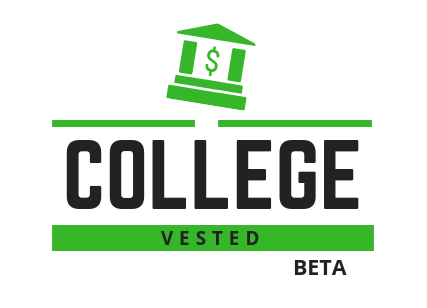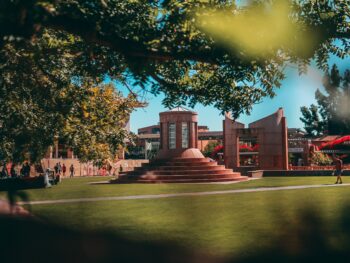Nothing compares to the feeling of finally receiving a hard-earned diploma. High school graduates can especially relate. After four tiring years, you finally get the freedom to shape your future. However, with this independence also comes new responsibilities, like learning to manage your money. Although intimidating, anyone can master budgeting skills to make those years after graduation a breeze.
Read on to learn how this motivated nursing student budgets her way through college.
Major: Nursing
Age: 20
Year: Junior
College: Northeast Wisconsin Technical College
How do you pay your tuition and monthly fees?
Towards the end of high school, I took a lot of time to fill out many scholarship applications and write multiple essays. Because I worked so hard volunteering in my community, kept good grades and was an overall good academic student, I received enough scholarships my first semester of college. I didn’t pay a penny that semester. I have one scholarship that I am able to receive over the course of four years as long as I keep good grades. This recurring scholarship has benefited me greatly to pay for tuition the past three years because it’s very hard to receive scholarships after your first year. Although, this recurring scholarship is only available to me every fall semester; it has now only been covering half of my semester tuition expenses.
To prepare myself for paying for college and other necessities, I gave up a lot of my time to hang out with my family and friends in the summer. I worked very hard in the summer months to earn and save up money for college and the near future. I do regret missing out on a lot of fun things with family and friends in the summer. But it is very nice to have saved a lot as a teenager so I can pay for the rest of each semester out of pocket rather than taking out any student loans. I will graduate debt-free, that’s a big goal and accomplishment that I am very proud of. I don’t have to worry about missing a payment or missing out on any fun things nowadays because I have a good savings account to fall back on. At one time, I held 1-3 full or part-time jobs. All these jobs have helped me build my savings, pay for tuition and any monthly fees. I continue to work full-time during school and part-time when I need more time for school or myself.
What are your monthly expenses?
For a while, I had a monthly car loan payment after buying my first car, but I paid off the loan right away because the interest as a young adult was high. I had enough money saved up where I was able and lucky to pay it off at the time. Currently, I am still living at home with my parents, whom I am very grateful for. To be living at home for free as I finish my nursing degree is a huge money saver. Since I don’t pay monthly rent, I buy groceries and chip-in around the household when I can. The only official monthly payment I have at the moment is a monthly withdrawal to my Roth IRA to start preparing for my retirement at a very young age. Other than that, I would say I pay for gas two or three times a month because I like to take trips on the weekends, if and when available. Along with that, I purchase groceries monthly for myself and/or my family. Then, there are the miscellaneous items I purchase once in a while, but those don’t matter too much since they aren’t monthly expenses.
How do you pay your expenses?
I pay my expenses by putting them on my credit card, which makes it easier to keep track of where and when I am spending my money. I pay that off at the end of each month by pulling from my savings account. I am currently working full-time while finishing my nursing degree, so I am always working hard and saving while paying for any expenses.
Over the years, I have learned that you can save big money as a teenager, but the older you get, the more expenses you have and the more you think, “Oh, I have the money, I’ll just buy it.” But it goes away quick, especially with inflation on the rise. I’ve learned that the way to save money while purchasing anything, whether it’s gas, groceries or clothing and accessories, is to shop at places where food is cheaper (e.g., Aldi), buy the off brand of anything, shop the sale racks or wait for things to go on sale and keep a lookout for which gas station, if any, has a cheaper gas price the day you need it.
What are your budgeting plans after graduation?
Finding a job once I graduate and apartment hunting is on the to-do list. Leading up to that is going to be a lot of saving for monthly rent and groceries. Once I graduate and get my license, I’ll be making more money, but that doesn’t mean I’ll be saving more since I’ll have bigger monthly expenses than I do now. Of course, I’ll be putting aside money for little vacations and fun things, but a lot if it will be saved and budgeted, specifically for rent and groceries. I will continue to look for the best deals and shop at places such as Aldi, which is a better option for groceries compared to Target. I was actually thinking about getting a budgeting notebook after I graduate to really keep track of payments and how I’m spending my money since I’ll have more adult responsibilities once I move out. It’ll be a big change, but I am so excited!
How did you spend your money last week?
Last week, I spent money on food, gas, a few items I was running out of and some entertainment things.
Sunday April 3
I picked up my prescription from my pharmacy and paid the difference that insurance doesn’t pay. Typically, when I am home on a weekend or get back from somewhere on the weekend, I like to use Sunday to do laundry, tidy up my room and unwind instead of going anywhere unless I really need to.
Monday April 4
Normally, I don’t make big purchases, but on this day, I made a really big purchase for a trip early this summer. I purchased multiple MLB tickets for a game in Chicago. Of course, there were the most outrageous prices this year, plus crazy city taxes.
Tuesday April 5
I had class and worked all day, so at the end of the day, I went home. No purchases on this day.
Wednesday April 6
On this day, I stopped at the grocery store for more coffee creamer. So, not a big purchase, but definitely something.
Thursday April 7
No purchases on this day.
Friday April 8
No purchases on this day.
Saturday April 9
I took a trip to Madison on this day, so I ate out a few times which I normally don’t do. I ate out for both lunch and dinner, but I made sure to pick something good from the menu that was also reasonably priced.
Week total: $727.25
Spending breakdown:
Food: $37.05
Drinks: $0
Entertainment: $667.26
Personal care: $22.94
Household essentials: $0
Transportation: $0
School supplies: $0
How does seeing this influence your spending habits?
These breakdowns really influence my weekly spending habits if you take away the food from eating out and the MLB tickets, because then it’s something that I do weekly. Surprisingly, I didn’t buy gas this past week, but if I did, it would be around $40-50 for a full tank. To save money, I choose to eat at home, have coffee at home and only buy things I need, when I need it, and buy the off brand or when things, such as clothing, are on sale.
Learning to manage your own money seems intimidating. With all the fun that college offers, budgeting often gets pushed to the side. However, from this student, we can learn that planning makes a world of difference. To start planning, consider saving up money throughout your high school years. This will give you something to fall back on during college. If you’re already in college, start saving now for your future life after college. When you need to make purchases, try to opt for the best deals. By taking these steps, you can work towards make budgeting easier in college.





 Keeping Track of Your Cash at UMass Amherst: The Ramen Project
Keeping Track of Your Cash at UMass Amherst: The Ramen Project